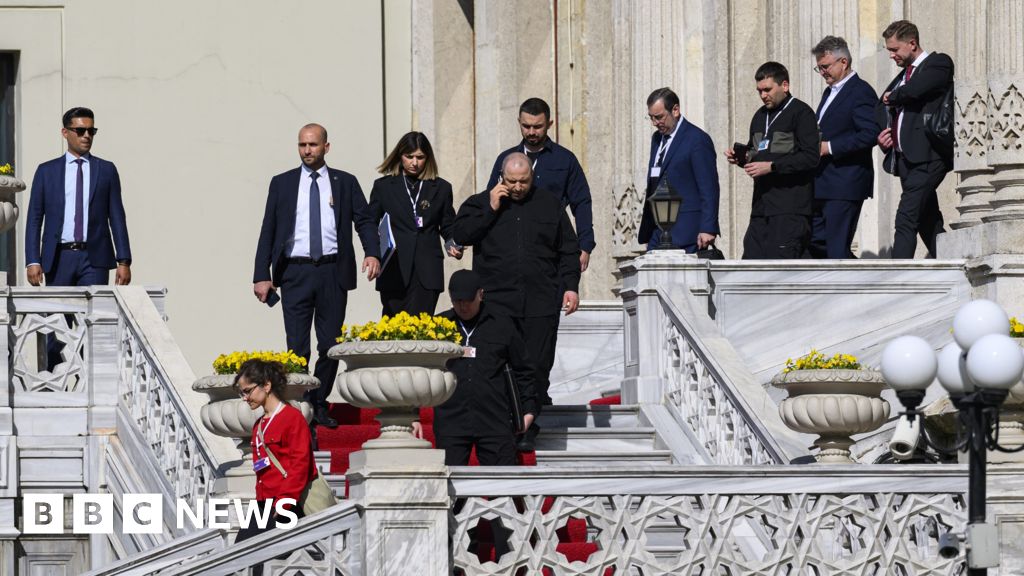Stalled Peace Talks Between Russia and Ukraine
The second round of direct negotiations between Russia and Ukraine has concluded without significant progress, resulting only in an agreement to exchange more prisoners of war.
Ukrainian negotiators indicated that Russia once more dismissed the request for an “unconditional ceasefire,” a crucial demand from Kyiv along with European and US allies. Nevertheless, both sides committed to returning the remains of 12,000 soldiers.
The Russian delegation offered a two- or three-day truce “in certain areas” along the extensive front line, but details were not provided. The discussions took place in Istanbul on Monday and lasted just over an hour, during which they did agree to swap all sick and severely injured prisoners of war, as well as those under the age of 25.
Low Expectations and Ongoing Divisions
Even before the talks commenced, expectations were minimal, with both parties remaining significantly divided about resolving a conflict that began with Russia’s full-scale invasion of Ukraine in February 2022. Presently, Moscow controls roughly 20% of Ukrainian territory, including Crimea, which it annexed in 2014.
Ukrainian Defence Minister Rustem Umerov, leading Kyiv’s negotiating team, insisted on a “full and unconditional ceasefire” for at least 30 days, covering land, sea, and air to “end the killings now.” He noted that Ukraine had submitted its ceasefire proposals to Russia a few days prior, but Moscow’s plan was only shared during the Istanbul discussions.
Responses to Ceasefire Proposals
Ukrainian President Volodymyr Zelensky criticized Russia’s suggestion of a temporary ceasefire merely to collect their dead. He stated on social media: “I think ‘idiots,’ because the whole point of a ceasefire is to stop people from becoming dead.” The specifics of both ceasefire proposals remain officially undisclosed.
However, Russian state media released details purportedly highlighting Moscow’s stance after the discussions, including unchanged demands for a Ukrainian military retreat from four partially occupied southeastern regions and the demobilization of Ukrainian soldiers. Additional demands involve international acknowledgment of the Donetsk, Luhansk, Kherson, and Zaporizhzhia regions, along with Crimea, as well as a ban on Ukraine’s membership in military alliances and the lifting of international sanctions on Russia.
No Signs of Progress
Ukrainian Deputy Foreign Minister Serhiy Kyslytsia stated that Russia had rejected the unconditional ceasefire. Ukraine also presented a list of hundreds of children they claim have been forcibly taken to Russia. Ukrainian negotiators expect a response from Russia regarding their proposals by the end of June, emphasizing the need for direct discussions between Zelensky and Russian President Vladimir Putin, though there are currently no indications of a forthcoming meeting.
Vladimir Medinsky, head of the Russian delegation, confirmed that the exchange of sick and severely wounded prisoners, including those younger than 25, would proceed, although a specific timeline was not provided. Both sides agreed to return 6,000 bodies of Ukrainian soldiers to Kyiv next week, while Zelensky mentioned that Ukraine would reciprocate with the remains of 6,000 Russian soldiers, without specifying when this would happen.
Call for Continued Pressure and Sanctions
Rejecting an unconditional ceasefire, Russia prefers discussions centered on “lasting peace,” reiterating its previous tough conditions, which Ukraine and its allies view as tantamount to surrender. Zelensky, attending a summit in Vilnius, Lithuania, reiterated the importance of strengthening Ukraine’s defense in light of the lack of meaningful signals from Russia to end the war and called for increased pressure through sanctions.
In the initial round of peace talks held on May 16, both sides failed to reconcile their differences, agreeing only to exchange 1,000 prisoners of war each. Zelensky and European allies have consistently accused Russia of deliberately stalling meaningful negotiations to capture more Ukrainian land. US President Donald Trump, advocating for a swift agreement, has yet to impose stricter sanctions on Russia, although he expressed openness to a three-way summit involving Zelensky and Putin, according to White House spokesperson Karoline Leavitt.
In a rare critique last month, Trump referred to Putin as “absolutely crazy” after extensive drone and missile assaults on Ukraine, to which the Kremlin responded by claiming Trump’s comments indicated “emotional overload.”



